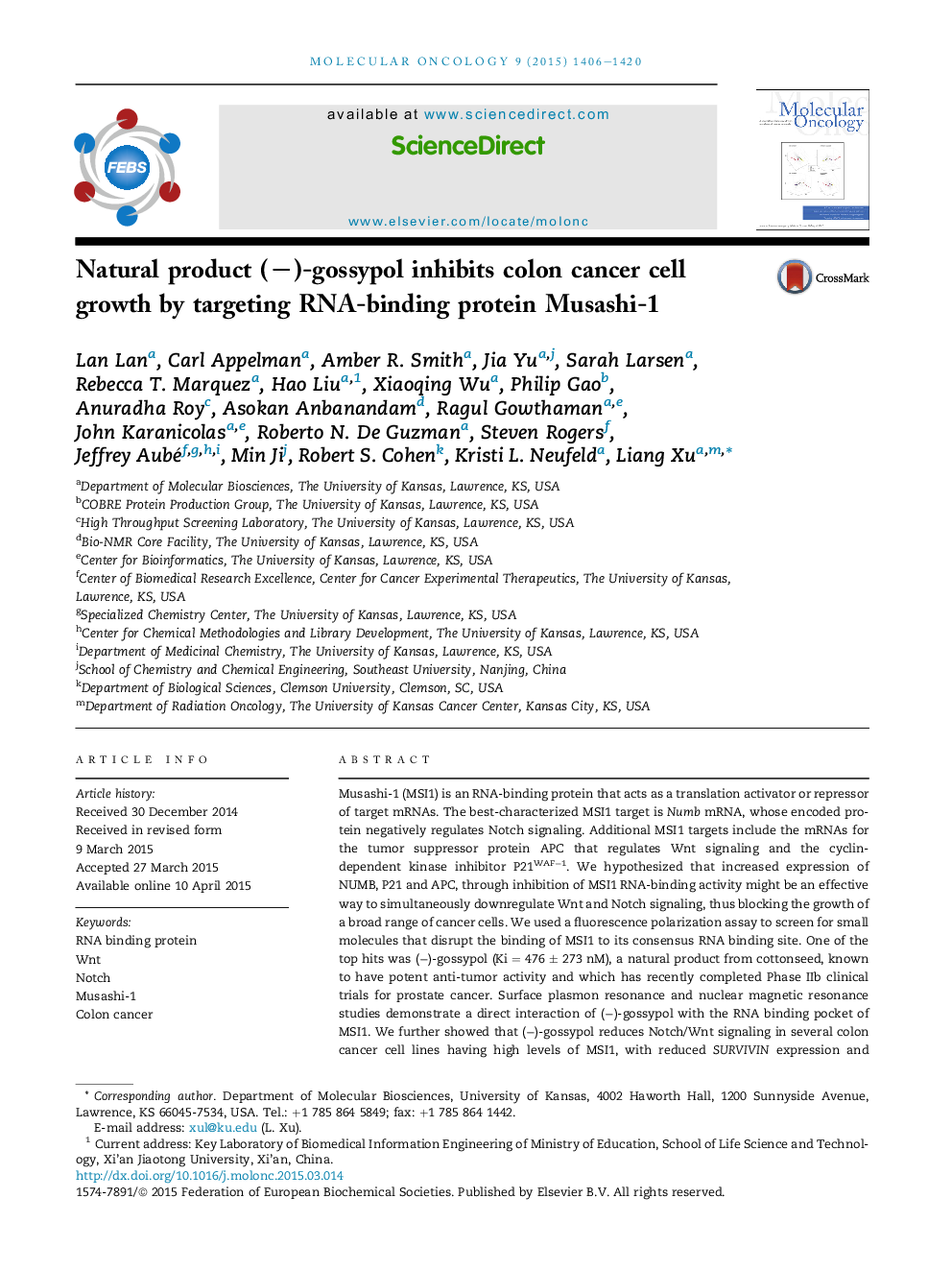| Article ID | Journal | Published Year | Pages | File Type |
|---|---|---|---|---|
| 10914660 | Molecular Oncology | 2015 | 15 Pages |
Abstract
Musashi-1 (MSI1) is an RNA-binding protein that acts as a translation activator or repressor of target mRNAs. The best-characterized MSI1 target is Numb mRNA, whose encoded protein negatively regulates Notch signaling. Additional MSI1 targets include the mRNAs for the tumor suppressor protein APC that regulates Wnt signaling and the cyclin-dependent kinase inhibitor P21WAFâ1. We hypothesized that increased expression of NUMB, P21 and APC, through inhibition of MSI1 RNA-binding activity might be an effective way to simultaneously downregulate Wnt and Notch signaling, thus blocking the growth of a broad range of cancer cells. We used a fluorescence polarization assay to screen for small molecules that disrupt the binding of MSI1 to its consensus RNA binding site. One of the top hits was (â)-gossypol (Ki = 476 ± 273 nM), a natural product from cottonseed, known to have potent anti-tumor activity and which has recently completed Phase IIb clinical trials for prostate cancer. Surface plasmon resonance and nuclear magnetic resonance studies demonstrate a direct interaction of (â)-gossypol with the RNA binding pocket of MSI1. We further showed that (â)-gossypol reduces Notch/Wnt signaling in several colon cancer cell lines having high levels of MSI1, with reduced SURVIVIN expression and increased apoptosis/autophagy. Finally, we showed that orally administered (â)-gossypol inhibits colon cancer growth in a mouse xenograft model. Our study identifies (â)-gossypol as a potential small molecule inhibitor of MSI1-RNA interaction, and suggests that inhibition of MSI1's RNA binding activity may be an effective anti-cancer strategy.
Related Topics
Life Sciences
Biochemistry, Genetics and Molecular Biology
Cancer Research
Authors
Lan Lan, Carl Appelman, Amber R. Smith, Jia Yu, Sarah Larsen, Rebecca T. Marquez, Hao Liu, Xiaoqing Wu, Philip Gao, Anuradha Roy, Asokan Anbanandam, Ragul Gowthaman, John Karanicolas, Roberto N. De Guzman, Steven Rogers, Jeffrey Aubé, Min Ji,
